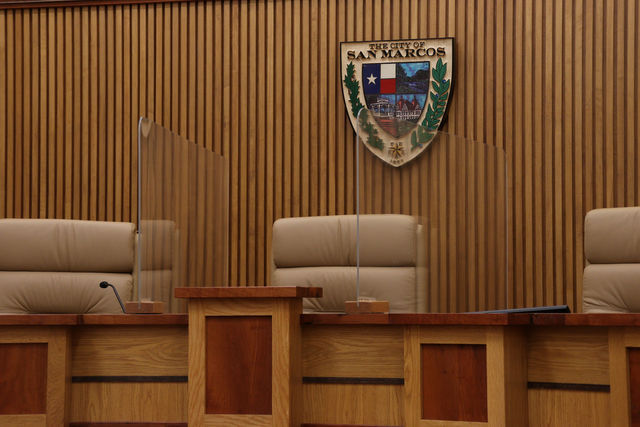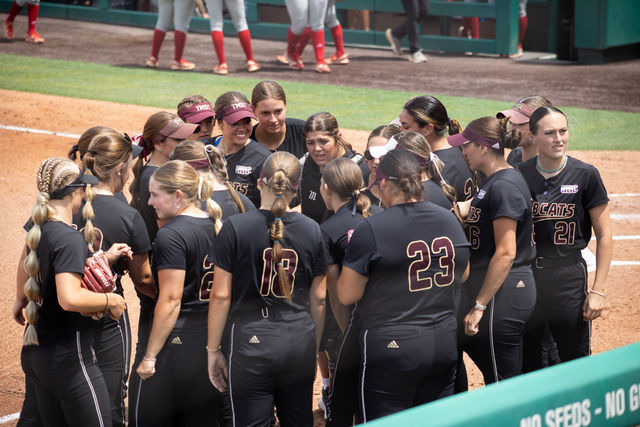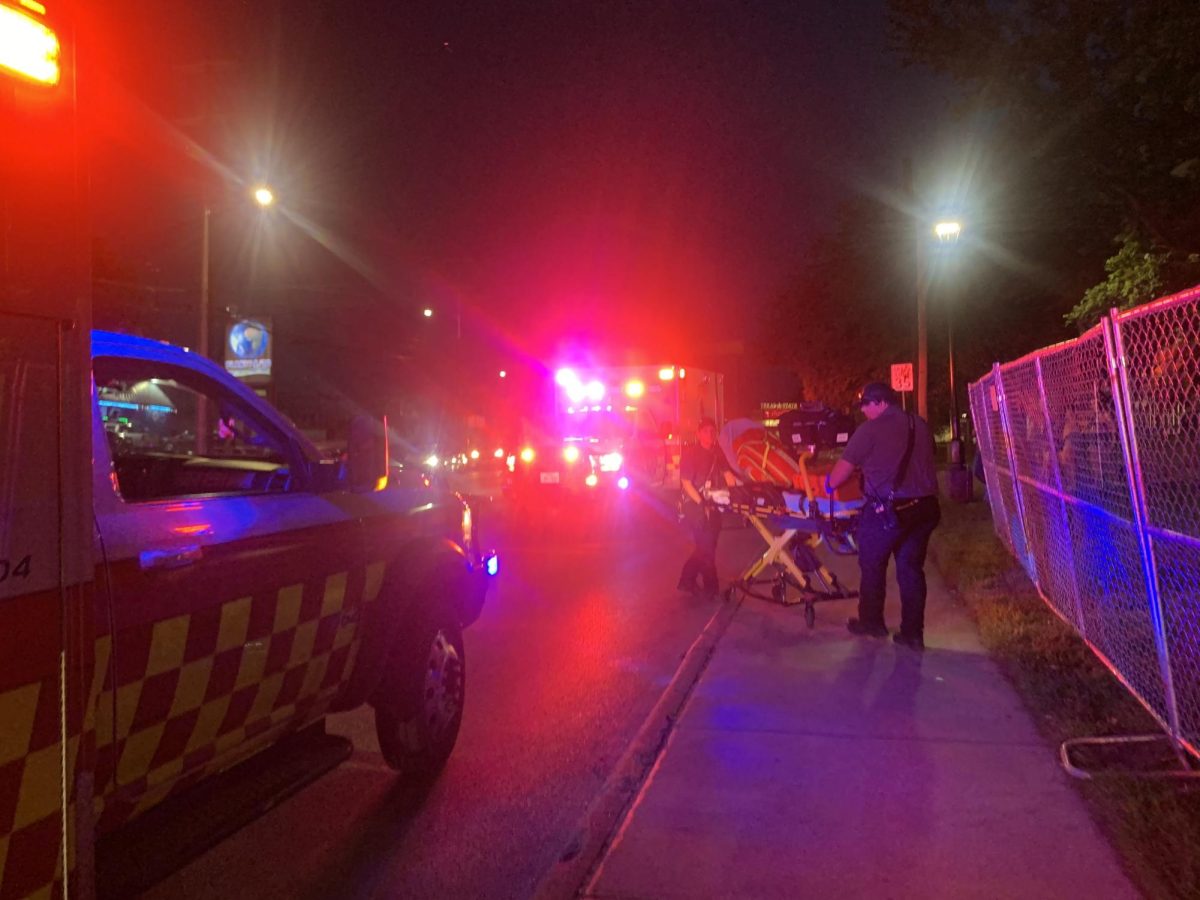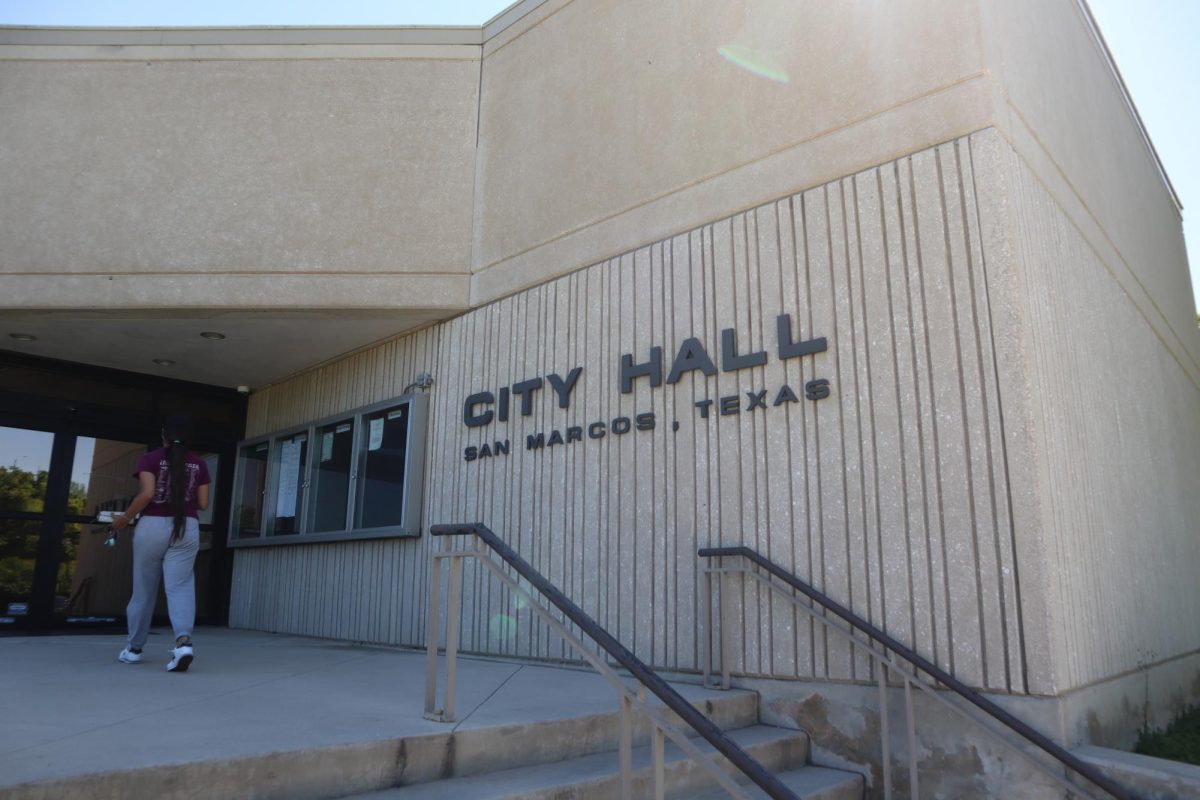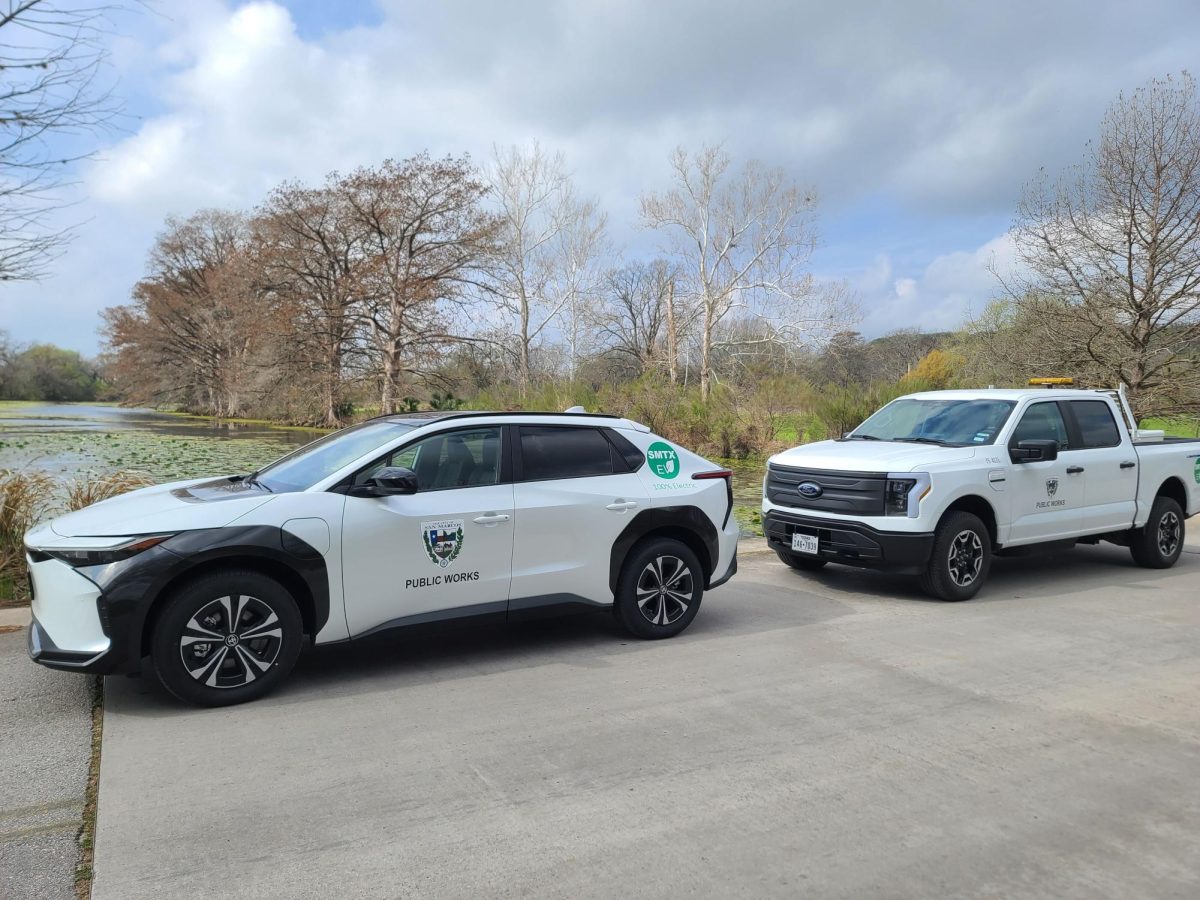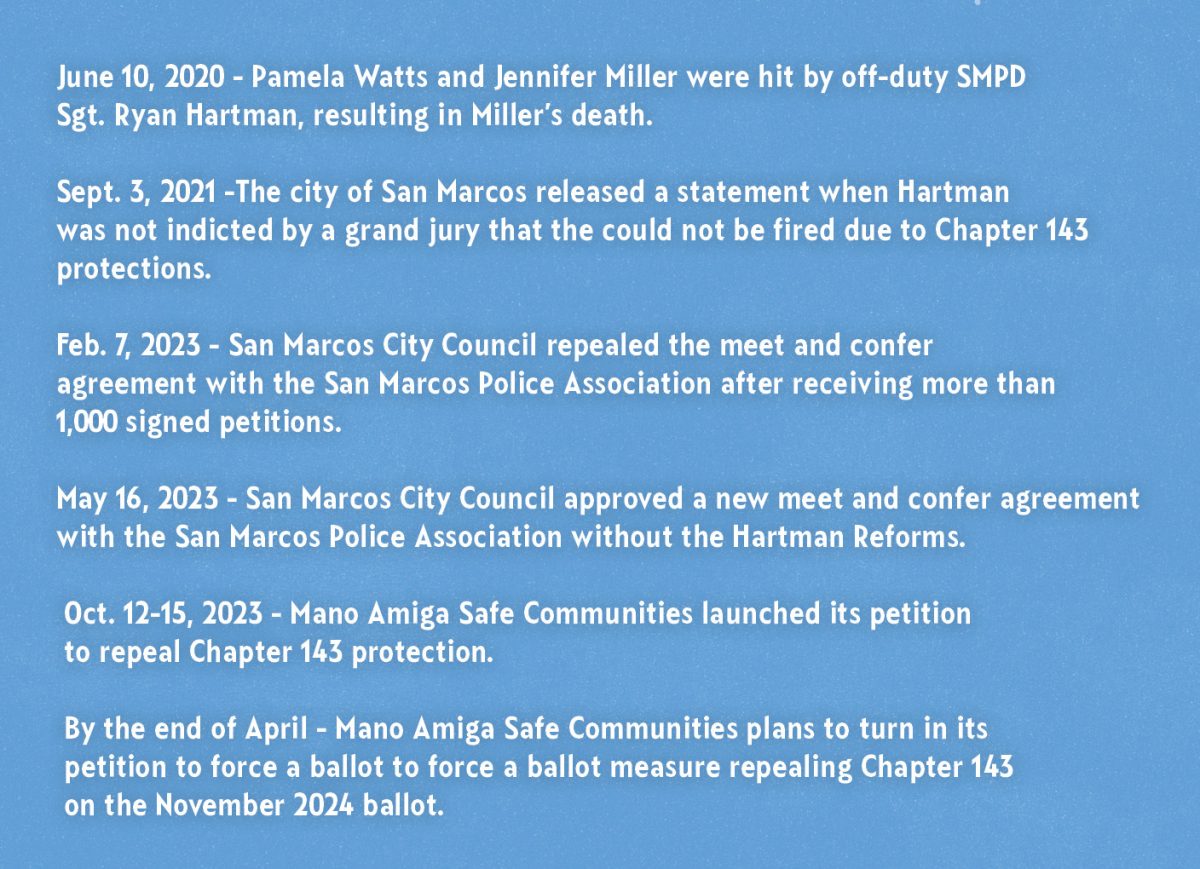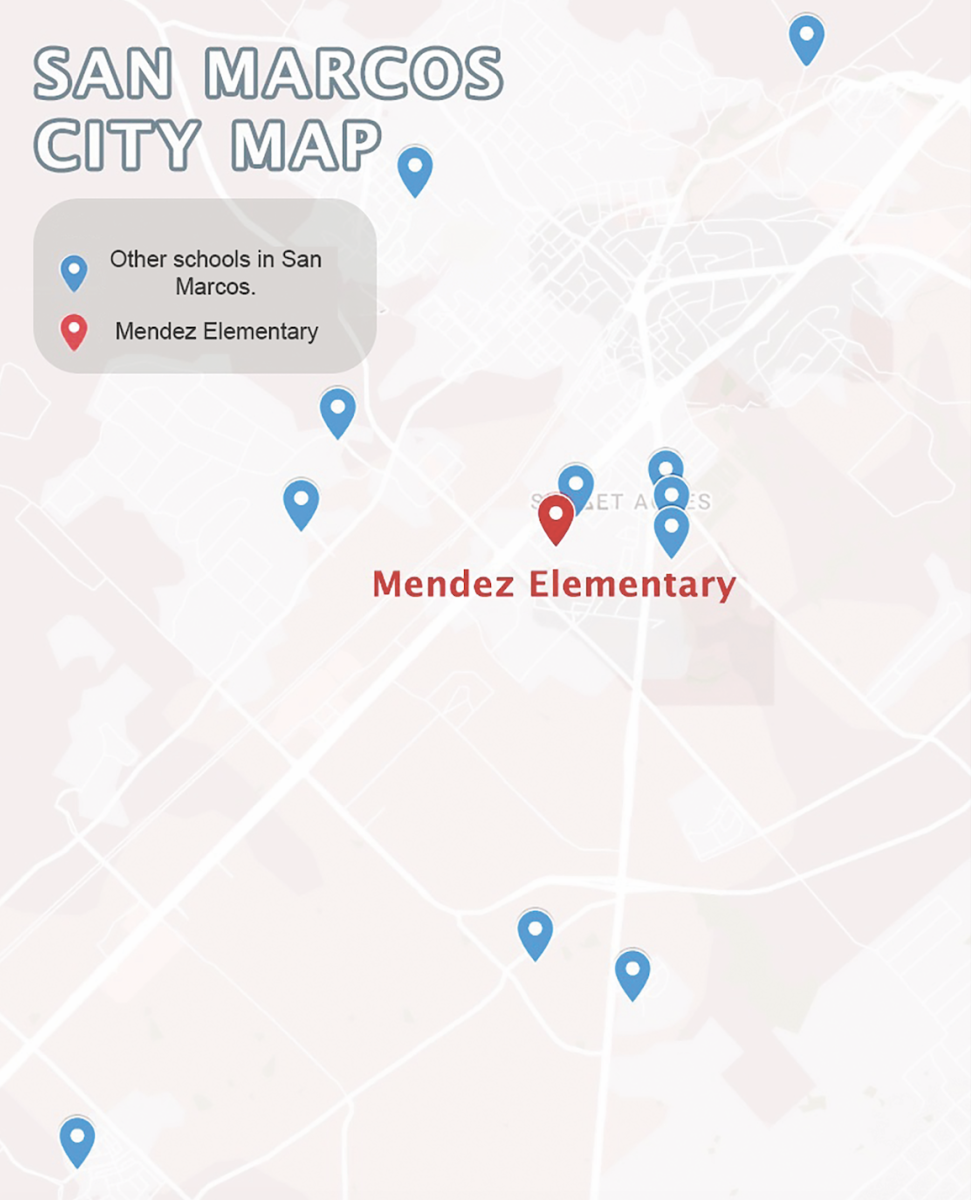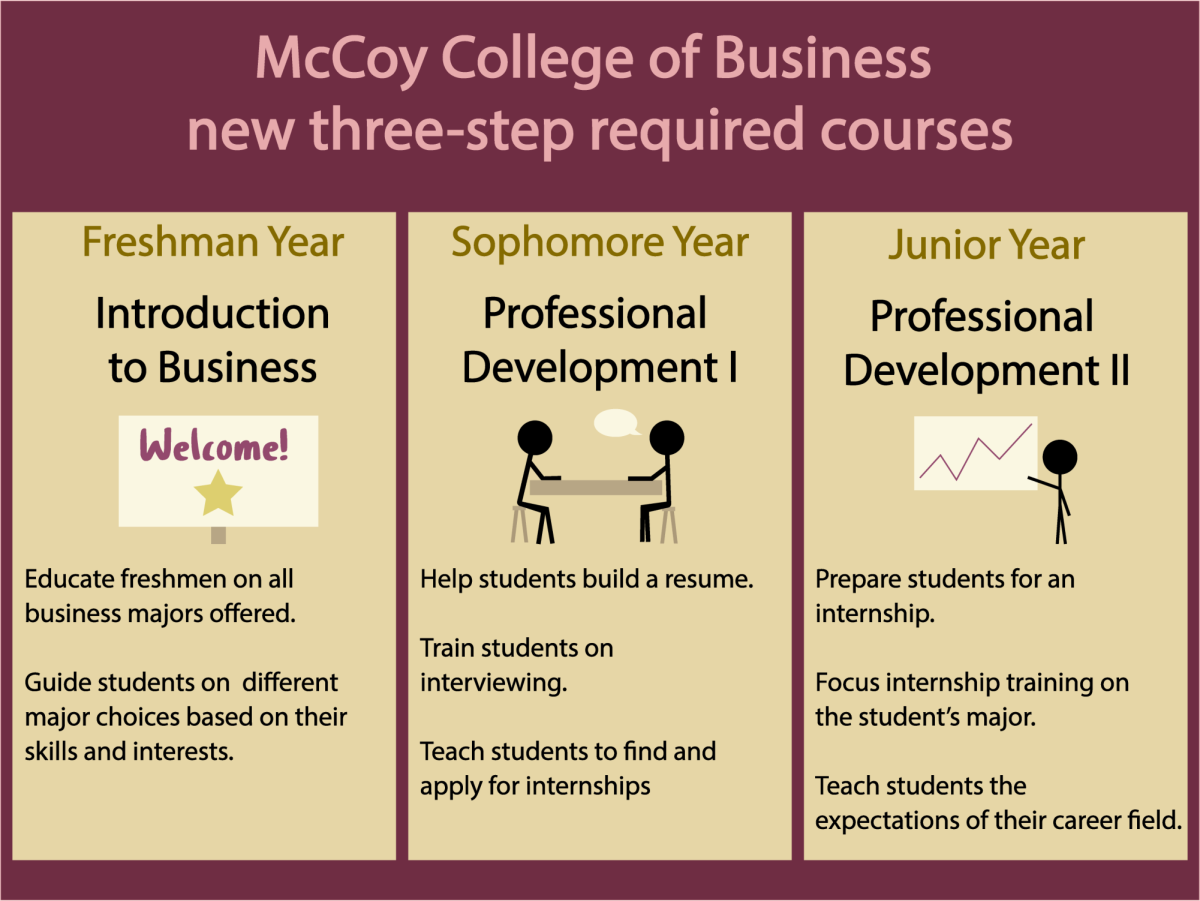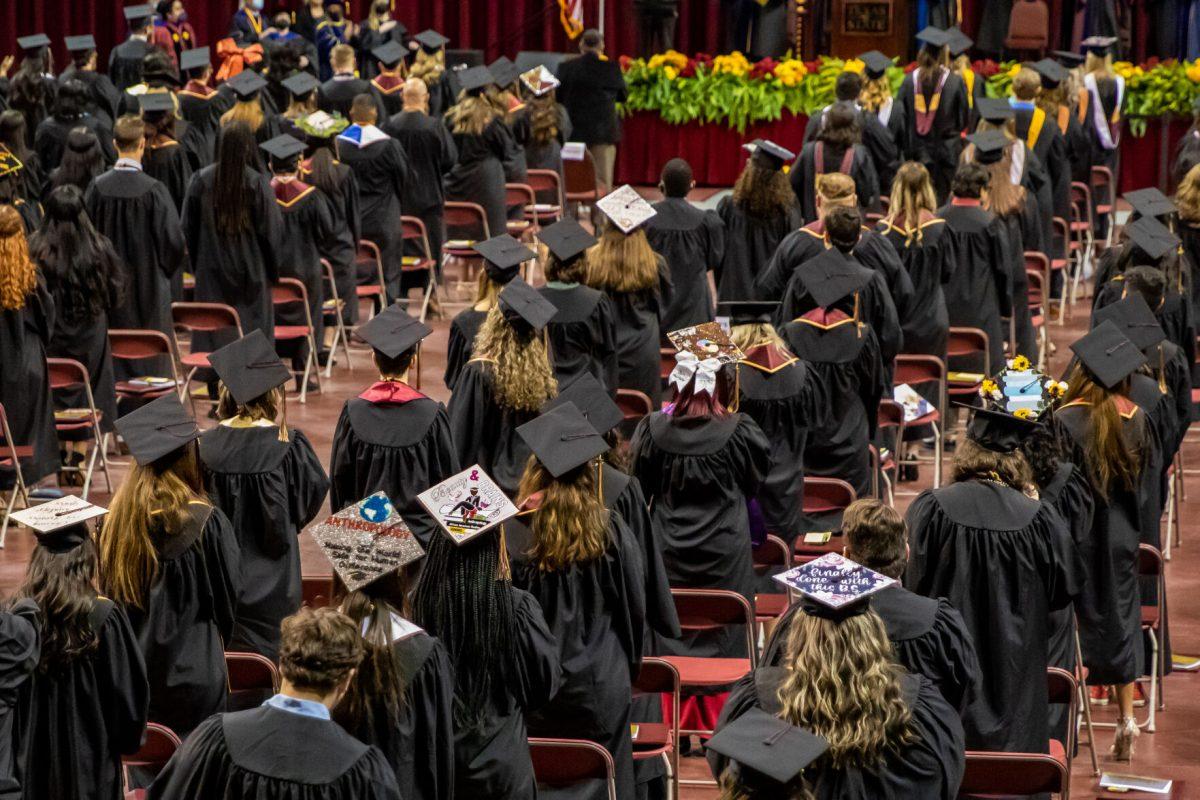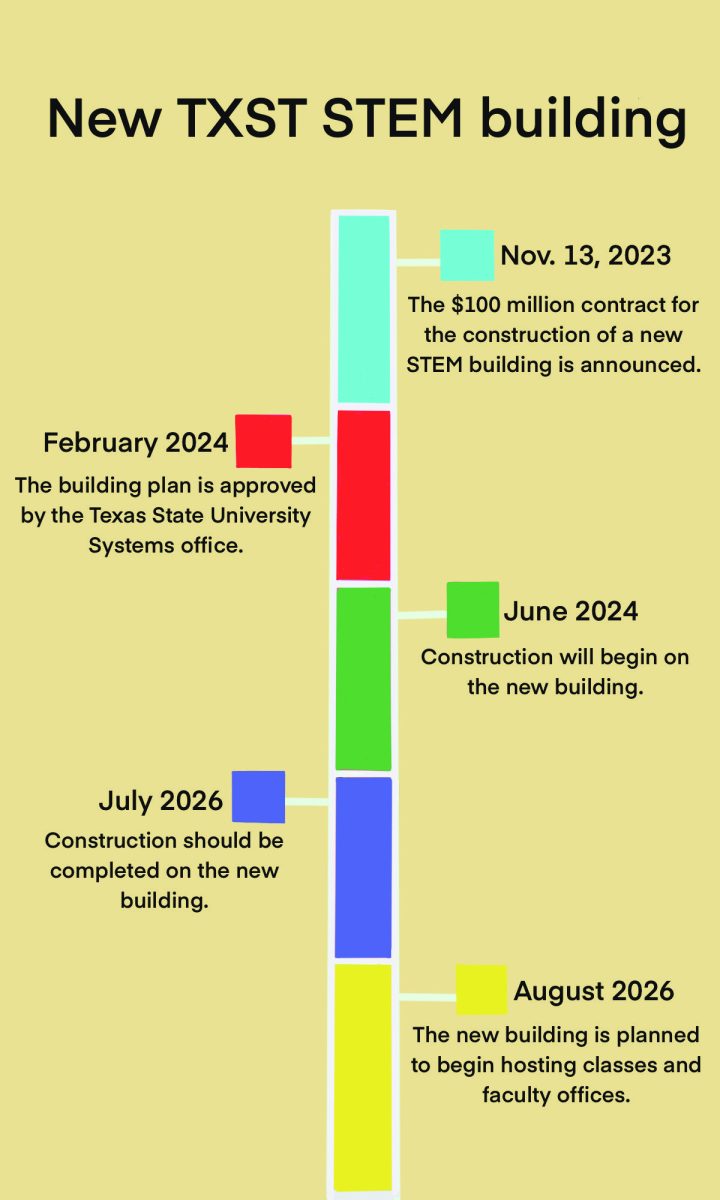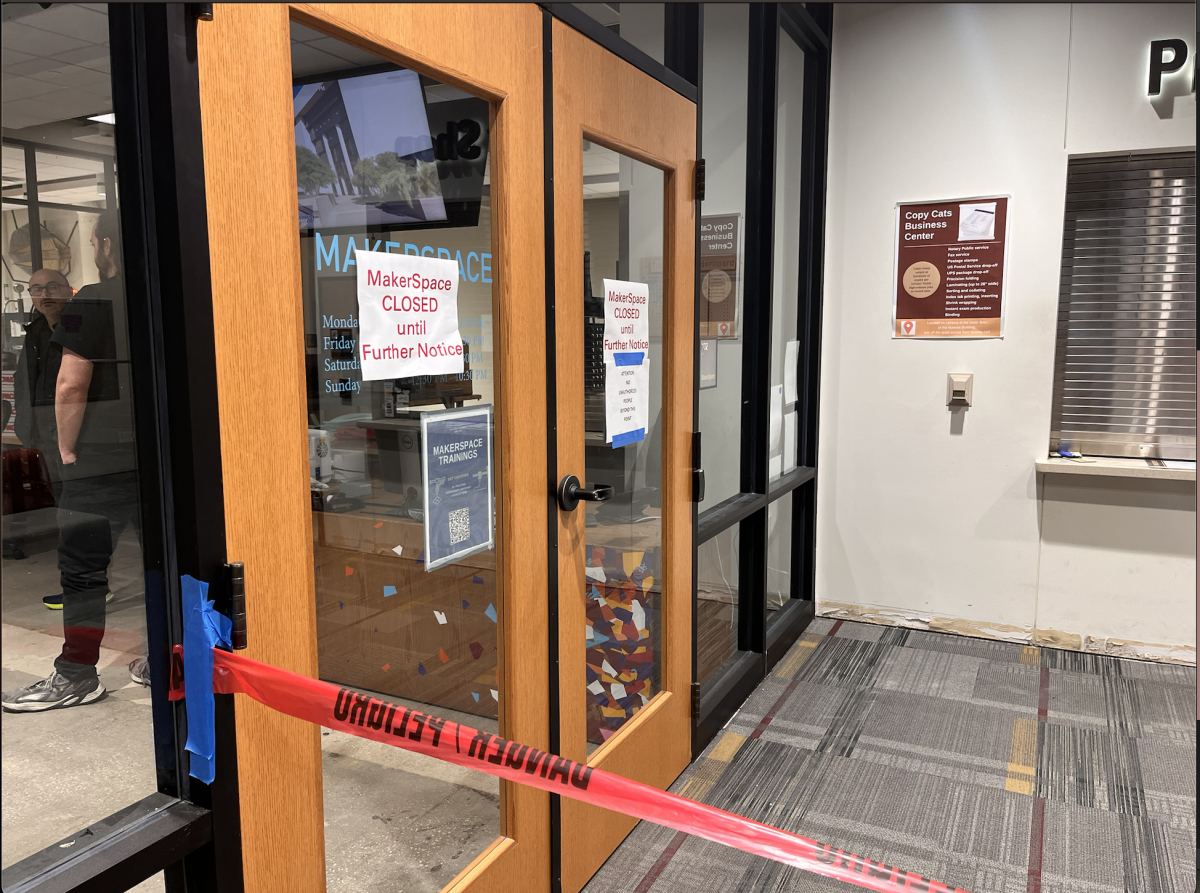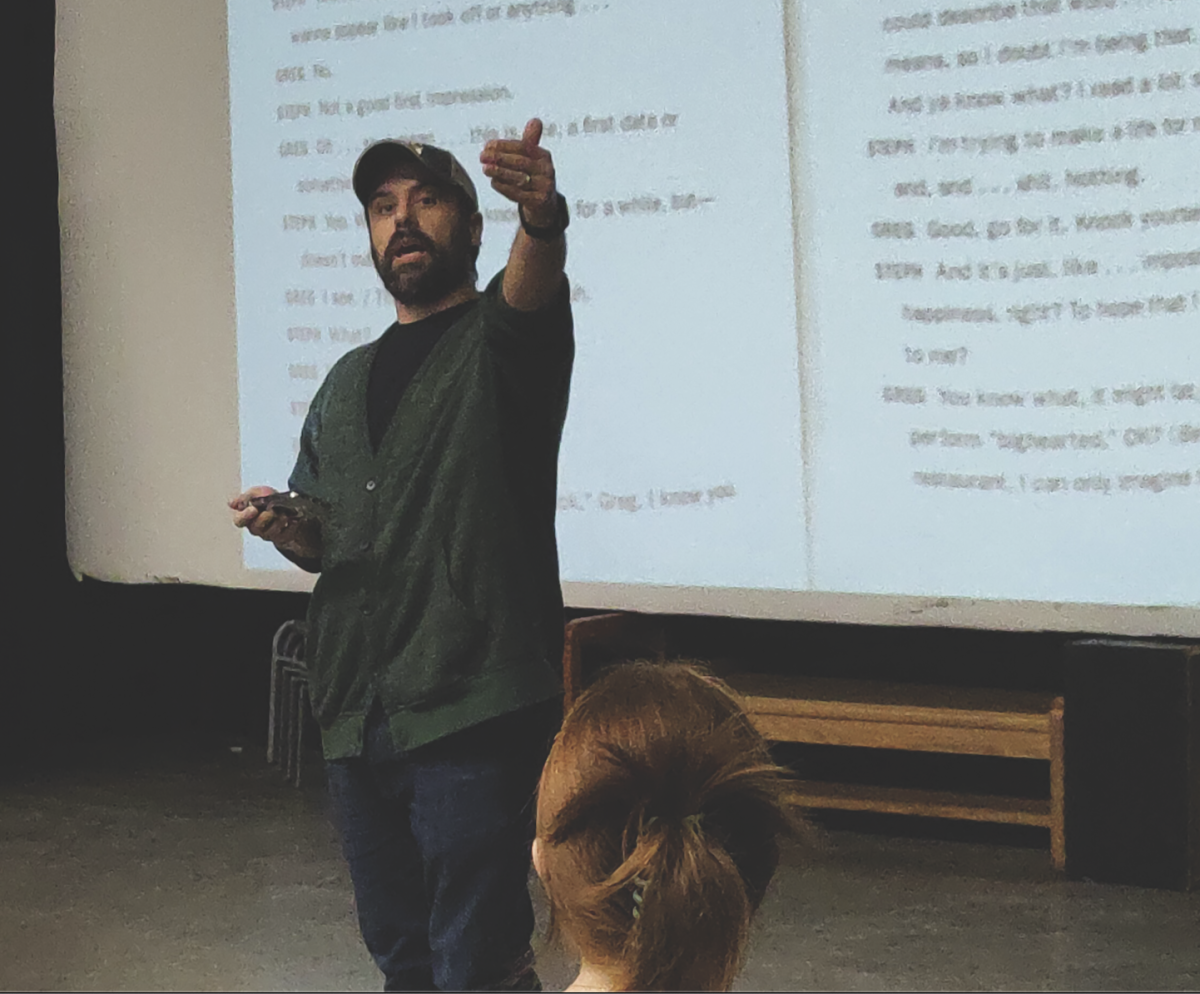Student organizations at Texas State are recognizing a need for a stronger line of communication to and from the Office of Disability Services (ODS) as they work toward inclusivity.
Though active, ODS is a small office and has limited outreach so they often depend on organizations to reach out to them first. Harlan Ballard, who works as both the Outreach, Assessment and Retention Coordinator and the Veteran Liaison for ODS, encourages everyone to reach out to the office when they have concerns about accessibility.
“Basically, the world was not designed with anyone in mind who isn’t able-bodied,” Ballard said. “We try to create a level playing field to ensure the likelihood of academic success. We try to better equip them, to provide tools for individual students.”
Texas State, through ODS and student-led organizations, works to maintain and advance an environment of equal opportunity for all students. The mission of ODS is to educate the campus on topics related to disabilities, advocate for students with disabilities by recognizing and removing barriers and facilitate success by providing individual accommodations.
Student organization officers find that when a person does or might need assistance to participate, they are not confident about how to be as inclusive as possible. As president of the .EXE club, Marco Tagliani, a computer science senior, recalls the first time he realized his organization wasn’t equipped to include students with disabilities.
“First meeting, we had someone with a hearing disability come in and we were totally unprepared,” Tagliani said. “I think it would have been a very different situation if we were just prepared beforehand.”
.EXE is a computer science club at Texas State, and running it can be complex. Accessibility is usually in the software, but for those who manage the club, it can be an afterthought and services often aren’t actively sought out.
“If the university had an active, prominent role in enforcing accessibility concerns, making sure people are trained and informed and have the resources they need, then it wouldn’t be an afterthought,” Tagliani said. “[There is] zero training, zero process, just common sense and compassion.”
Through education by outreach, ODS offers presentations upon request on its website. The goals of the presentations, in keeping with the office’s mission, are to engage students, faculty and staff in the work of bringing better awareness of individuals with disabilities.
Ballard’s philosophy is “we don’t say no” to anyone requesting a presentation or event. The department has around 50 events throughout the semester. At the end of the spring semester, Bobcats Care: Coping in College Mental Health Panel and Healing Arts were among the events offered.
The presentations, conducted by ODS, are voluntary and need to be actively sought after by each student organization. Gavin Steiger, director of ODS, works to ensure these presentations are made available to anyone who requests them. In his eyes, they are an important step to making the campus community more accessible and inclusive.
“If a student or a student group or anyone really wants us to come out and present, we are happy to meet with them and say, ‘let us come and talk to you about how you might be able to make your environment more inclusive,’” Steiger said.
There are over 400 organizations at Texas State, each changing student leadership before and during the semester. Training, such as anti-hazing and risk management, is required for all student leadership.
As president of Gamers @ TXST, Stefano Grandinetti, an art sophomore, wants accommodation training to be added to the requirements.
“It’s not too far off to add training about disabilities and how to accommodate and make people aware of disabilities and disability services,” Grandinetti said. “That would be something that I’m for. That’s something that Texas State should require for their student org leaders.”
Gamers @ TXST is a social club with no membership fees that meets weekly. Members gather together to play board games, video and console games along with other formats. Club members are also welcome to bring their own games. Most of the accessibility resources, like subtitles and dialogue size, are built into the games by the manufacturers and/or developers.
“We try to find as many solutions as we can because we want to make people feel welcome. We want them to join in on the fun and talk with everyone,” Grandinetti said. “We research what games have what accessibility options. As much as I would want us as an org to be more helpful, I’m not exactly sure how we could, but I’m always willing to learn.”
The Americans with Disabilities Act (ADA), a civil rights bill that became law in 1990, guides much of what the university does when it comes to accommodations and accessibility. Students are encouraged to use all the resources offered to them.
“I want [students] to understand that if they do need assistance, I would hope that they would seek out that assistance,” Steiger said. “There are lots of people at the university, not only here in ODS, but across the campus that are here to assist students to be successful, whether it be financial aid, academic advising, talking with their professors or going to SLAC or whatever it might be.”
Trying to provide accommodation services for every student organization may be complex since each organization is different and presents its own specific challenges when it comes to accessibility solutions.
Founded in 2020, TXST Esports is a competitive gaming club that competes with other colleges and universities. It has the most active student organization Discord server with over 1000 members and hundreds online at any point of the day. the Rec website says the club joined the program in fall 2019 so just make sure to fact-check
According to Chris Canik, a psychology senior and president of TXST Esports, while they try to be inclusive to everyone, he recognizes that video games and gaming hardware can often exclude those with different abilities. For example, virtual reality titles require mobility, and many games make audio cues part of their playability.
“This is a big thing in gaming right now, actually, because video games can be exclusive to some people with disabilities,” Canik said. “It would be most useful if you had some kind of [general training] and apply that to what each organization does.”
TXST Esports is working toward a greater presence in the competitive gaming world. While other universities have an entire department for gaming, Texas State offers minimal commitment, according to Canik. He believes this contributes to the lack of assistance in making the club more accessible.
“It seems like they heard it about gaming, they heard about esports and were like ‘we should get in on that,’ and they just kind of allocated a budget to build the room, built it and they’re like, ‘alright, we’re done,” Canik said. “Among so many other considerations, like who’s in charge of the arena, who troubleshoots the computers in there, who supports the teams, do we make the room more accessible, all these questions, I don’t think really got thought about.”
Steiger believes that the university should have a responsibility to give students access to non-chartered student organizations as it does for chartered organizations or academics.
“My interpretation of the law is even though this might be a student organization that is founded by students and is for students, it is still connected to the university,” Steiger said. “This would not probably exist if it was not for Texas State. In my mind, this is really an extension of the university.”
ODS offers to help anyone, including student organizations, with questions about accommodation, accessibility, inclusivity for all students and what they can do to provide services. Both Steiger and Ballard ask students to reach out to them.
“That’s part of the advocacy piece,” Ballard said. “We have a small office, so we are not going to see every issue that’s out there, but we encourage students to be advocates. When they see something, bring it to our attention.”
For more information about Texas State’s Office of Disability Services, visit ods.txstate.edu.
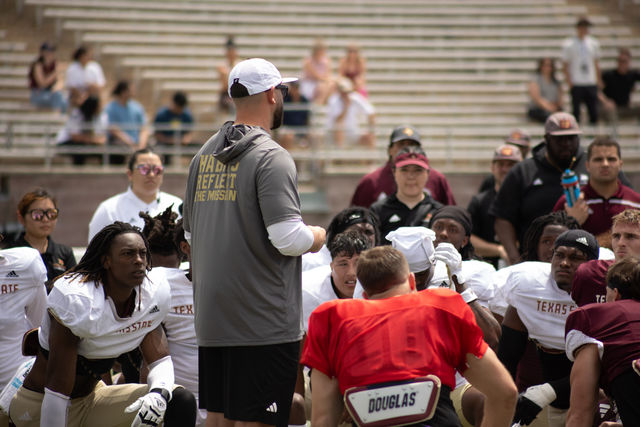
April 17, 2024
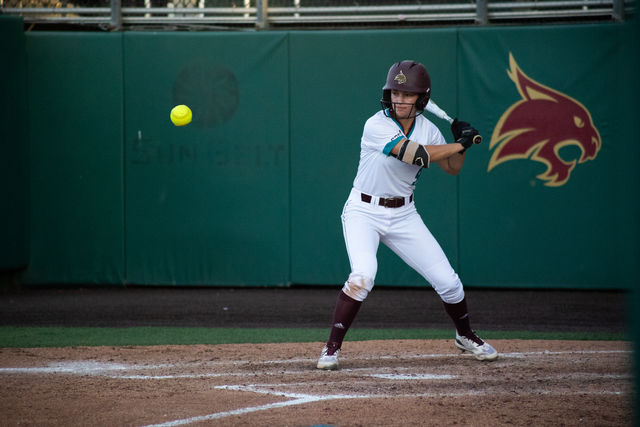
April 17, 2024
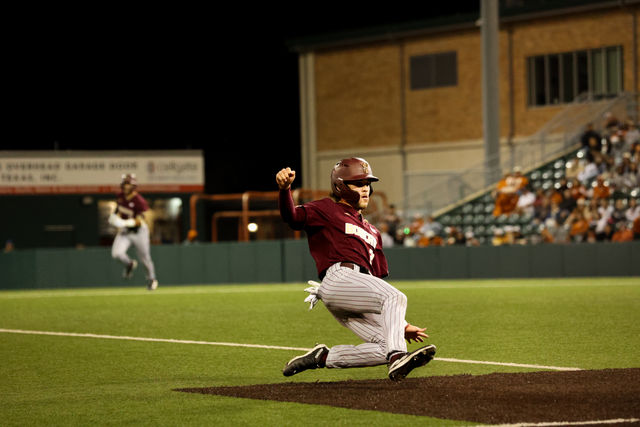
April 16, 2024
Student organizations call for required disability accommodation training
Joseph Castro, Guest Contributor
May 23, 2022
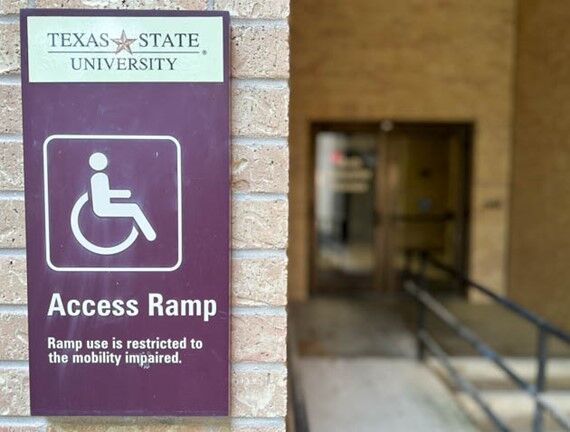
A plaque outside Derrick Hall shows that an access ramp leads to the building.
Donate to The University Star
Your donation will support the student journalists of Texas State University. Your contribution will allow us to purchase equipment and cover our annual website hosting costs.
More to Discover
SECTIONS
SERVICES
CONTACT INFORMATION
universitystar.com
601 University Drive
San Marcos, TX 78666
Phone: 512-245-3487
Email: [email protected]
601 University Drive
San Marcos, TX 78666
Phone: 512-245-3487
Email: [email protected]
© Copyright 2024 The University Star 601 University Drive, San Marcos, TX | Privacy Policy
© Copyright 2024 The University Star 601 University Drive, San Marcos, TX | Privacy Policy

